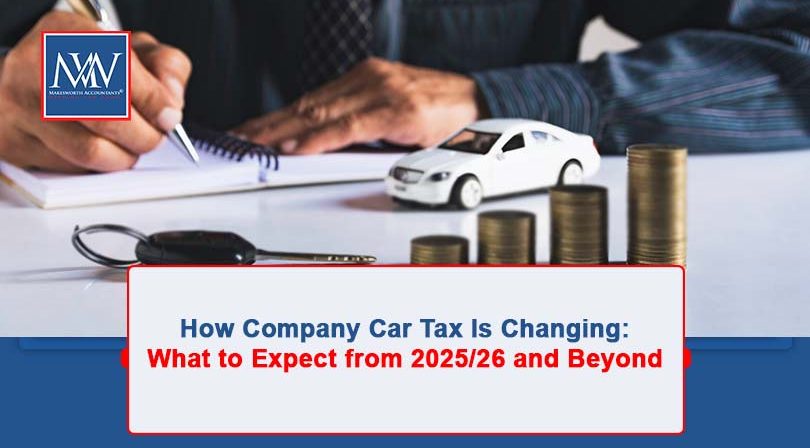
How Company Car Tax Is Changing: What to Expect from 2025/26 and Beyond
Taxing Company Cars: The Basics
If you have access to a company car for personal use, you’re required to pay tax on the benefit you receive. The tax charge is calculated as a percentage of the car’s list price, including any optional extras, with adjustments for any employee capital contributions up to £5,000. This percentage, known as the “appropriate percentage,” is based mainly on the car’s CO2 emissions. Diesel vehicles that don’t meet certain emissions standards attract an extra charge.
Adjustments are also made if the car is only available for part of the tax year or if the employee makes private use contributions.
What’s Changing in 2025/26?
Starting from the 2025/26 tax year, having a company car will become slightly more costly. The appropriate percentage will rise by one percentage point across the board, capped at a maximum of 37%.
-
Electric cars: The Tax will increase from 2% to 3% of the list price.
-
High emission cars (155g/km+): The maximum 37% charge will continue to apply.
For example, if an employee has a company car with a list price of £30,000 and is taxed at the higher rate, they can expect to pay around £120 more in tax compared to the previous year. Employers, too, will see higher Class 1A National Insurance contributions, as the rate will increase from 13.8% to 15%.
Looking Ahead: 2026/27 and Beyond
The government is gradually scaling back the tax advantages for electric and low-emission cars to sustain tax revenues as more drivers opt for greener vehicles.
Here’s what’s coming:
-
2026/27:
-
2027/28:
Significant Shifts in 2028/29 and 2029/30
Expect bigger changes as we move into 2028/29 and 2029/30:
-
Zero-emission cars:
-
Cars emitting 1 to 50g/km CO2:
For vehicles with an electric range of more than 130 miles, this change is dramatic, jumping from a 5% charge in 2027/28 to 18% in 2028/29.
-
Other vehicles:
Why Planning Matters
Since employees often keep their company cars for three to four years, it’s wise to think ahead when choosing a new vehicle. Consider not just the current tax implications but also the expected increases in future years. This is especially important for those opting for electric or low-emission cars, where significant tax hikes are on the horizon.
Partner Note: Relevant legislation: ITEPA 2003, sections 133, 139–141.
For more information, Book a Free Consultation
Need Accountancy Support?
For information on bespoke training, or if you have any other questions for Makesworth Accountant, please fill in your details below
















 151
151